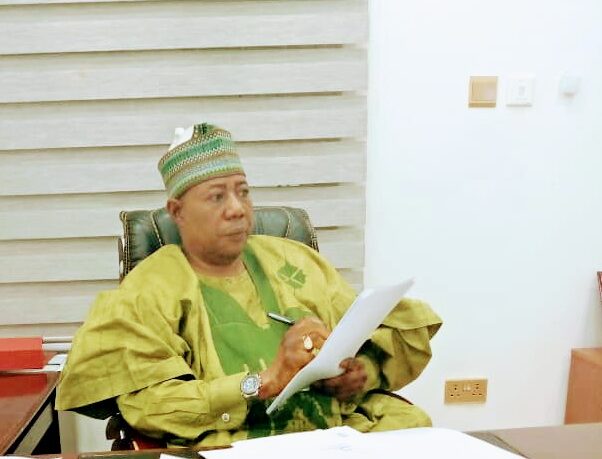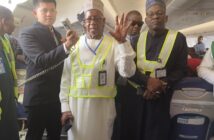It is a mirage to think of a conflict-free human community. It doesn’t exist anywhere because human lives are largely about personal interests, first, before anything else. That said, societies do prosper, develop, flourish and maintain a peaceful coexistence through constructive dialogue and fashioning a potent means of managing diversities.
With the issues around post presidential election still raging, it is time to start discouraging the distractions and concentrate on confidence rebuilding measures so that President Bola Ahmed Tinubu’s government can settledown to work.
However, we’ll be playing the ostrich, if we assume bad water may not have passed under the bridge in the course of this electoral contests. It is eternally true that politics is a game of plural interests, which must be cautiously aggregated. In every contest, there will always be one winner. In any case, the long and short of politics should be about national interests.
Some of our politicians have used divisive tendencies to cause political strife, all to their advantage. Gullible Nigerians are meant to believe that it is a just cause, whereas they are after their selfish material gains. These are the kind of persons that would readily create the impression among Nigerians that because President Tinubu is not a northerner from South South, he is not fit to lead the country.
Our politicians, in the aftermath of the presidential contest, must demonstrate that their interests in politics is, to a large extent, nationbuilding and not pedestal considerations about how well they receive the outcome. We cannot afford to bring down the roof because it did not favour us.
Statesmanship and sportsmanship is most required at a time like this. By understanding, a statesman is someone vested in the principles or art of government, especially one actively engaged in conducting the business of a government or in shaping its policies; a wise, skillful and respected political leader.
Those who could not make it this time should toe former President Goodluck Jonathan’s principle of ‘giving the winner a golden call,’ or taking a stand of ‘my ambition not worth the blood of any Nigerian’. It should be language of reconciliation, peacebuilding and peaceful coexistence now.
As I have always advocated and still advocating, Nigeria’s development is harped on national unity which can only be enhanced by effective and vibrant leadership. The nexus or synergy that exists between leadership and development cannot be expressed with words. Those manipulating religion and ethnicity to gain cheap political benefits will do well to give chance for a new Nigeria.
I’m optimistic that together we can build a Nigeria where every citizen enjoys the fruit of unity and prosperity and our nation stands as a beacon of hope and progress for all.
It is time to promote national unity which is the duty of everybody in the country. The government and individuals should be involved in the means of promoting national unity. Our words and actions must demonstrate the fact that National Unity is priceless.
No doubt, Nigeria is large and full of diversities. The country has about 350 different ethnic groups with different dialects. It’s a herculean task to manage such huge diversities. No efforts must be spared promoting peace building.
Peaceful co-existence and peace building is so priceless that past leaders have taken steps that engendered peace. For emphasis, in 2015, a defeated President Jonathan did not only decline approaching the court but famously said: “My ambition is not worth the blood of any Nigerian.” This is an eternal lesson for aspiring leaders and those already in the position of authority.
Similarly, Nelson Mandela famously said Peace is not just the absence of conflict but also the creation of an environment where all can flourish regardless of race, colour, creed, religion, gender, class, caste, or any other social markers of difference.
The iconic and godfather of Nonviolence agitation, Mahatma Ghandi, once opined that “Peace will not come out of a clash of arms but out of justice lived and done by unarmed nations in the face of odds.”
Suffice to back this appeal up with religious injunctions. The teachings of Islam enjoins people to live a peaceful life based on theism, justice and purity. Therefore, peace in Islam is an eternal constitution. Even the nature of war in Islam is a defensive one, not an offensive one because the principle of Islam is peace and coexistence, not conflict, violence and war.
Christianity teaches non-violence, as Jesus said, “Blessed are the peacemakers.” Jesus admonished Christians to live in peace with others. In Him, we have reconciliation with others, live at peace with them (Colossians 1:19-20), have fellowship with one another (1 John 1:9) and live with others in unity and one accord through the bonds of peace (Ephesians 4:3)
Governments of the past have taken several measures to reinforce national cohesion and unity. Institutions such as unity schools were established for the purpose of promoting unity in the country through accommodating children from any part of the country and giving them opportunity to learn.
The National Youth Service Corp (NYSC) scheme was established by the federal government in 1973 to bring about unity among graduates from different institutions, educated fellows to come together from different states to serve their nation for a period of one year. This is time to reinforce the ideals of NYSC.
For hindsight, national unity is when people in a country live and work together in harmony and love which has national symbols such as national anthem, national currency, among others.
To co-exist is to live together with others of different cultures and backgrounds. When people live together in peace, there is harmony, tranquillity, quietness, love. Therefore, peaceful co-existence means different people living together under peaceful conditions.
Nigerian unity is a situation where by people of diverse cultures, religions, languages, political, social and economic systems are brought together to have a common goal and the people have mutual understanding, love, cooperation and trust among themselves despite frantic efforts by political cabals to stall our unity as a country.
As I conclude, let me emphasise the importance of national unity. It allows for rapid development, fastrack foreign direct investment and increase Nigeria’s respect amongst the comity of nations. Unity also fosters a sense of belonging which can enhance productivity and lead to the attainment of national goals.
In addition to the benefits national unity brings to Nigeria, it also engenders mutual respect and understanding because whenever people come together they learn from each other and develop a deeper appreciation for diversity.
Make no mistake, peace is only possible where we’re ready to tolerate other people. We must be hospitable, show warmth and affection to others. Avoid discrimination and allow inter marriage. Example of inter marriage is when a Yoruba woman is allowed to marry an Igbo man and vice versa.
The series of actions by the three months plus government of President Bola Ahmed Tinubu has demonstrated purity of intentions for Nigeria. All that is required now is Nigerians. Both leaders and followers must be committed to peaceful coexistence in order to create a conducive environment for the Tinubu administration to nuture its laudable policies and programmes to fruition.
– Ibrahim is director, Communication and Strategic Planning, of the Presidential Support Committee (PSC).



